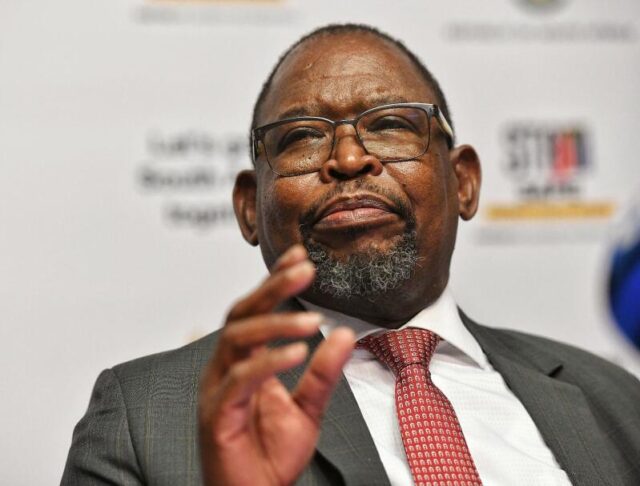Finance Minister Enoch Godongwana has hinted that the government could begin a process of downsizing its headcount of more than 1.2 million workers and freeze recruitment for certain positions as part of “difficult trade-offs” aimed to ease pressure on the fiscus due to the rising public sector wage bill.
FINANCE Minister Enoch Godongwana has hinted that the government could begin a process of downsizing its headcount of more than 1.2 million workers and freeze recruitment for certain positions as part of “difficult trade-offs” aimed to ease pressure on the fiscus due to the rising public sector wage bill.
This is likely to be fiercely contested by workers unions who have been playing hard ball against the government’s austerity measures on the back of the rising cost of living as a result of elevated consumer inflation.
Presenting the National Treasury Budget Vote in Parliament on Tuesday, Godongwana said the Treasury would continue to ensure that public finances were restored to a sustainable footing, by stabilising debt, promoting economic growth and cushioning the economy from financial and other shocks.
However, Godongwana said a key challenge for the fiscus was the management of the public sector wage bill.
The government currently spends roughly one-third of the budget on the salaries and benefits of public servants and political office-bearers.
Godongwana said the public sector wage bill was set to rise to more than R760 billion in 2025/26. The recent wage agreement had placed upward pressure on the wage bill, meaning that the Treasury must identify more than R37.4bn in savings to cushion the blow on the fiscal framework.
“This will involve executing difficult trade-offs and may entail a rationalisation of staffing levels and deployment of headcount management strategies as a means to curb the wage bill,” Godongwana said.
“Simply put, and as I indicated in the Budget Speech, a higher-than-budgeted wage agreement means less space for the recruitment of staff.
“The Treasury is working with the Department of Public Service and Administration, as well as the provinces, to co-ordinate the process of identifying ways of restricting headcounts, among other things, so that the funds for the wage increase can be recouped.”
This comes as the majority of parties recently agreed to a two-year agreement, which encompasses a 7.5% increase during the wage negotiations at the 2023 Public Sector Co-ordinating Bargaining Council.
This will result in the current cash allowance being translated into a pensionable salary, plus an increase of 3.3% in 2023/24, and a Consumer Price Index-linked increase in 2024/25.
This year, 2023, marks three years of the Treasury conducting spending reviews using the improved methodology.
Collectively, these reviews have highlighted potential inefficiencies of R27bn across programmes, with proposals for closure, scaling down of programmes, allowing the government to reallocate spending to support some of our most pressing priorities.
Godongwana said the total allocated budget for the National Treasury for 2023/24 amounted to R34.9bn.
Of this, 85% is allocated for transfers and subsidies mainly to the South African Revenue Service (Sars), the State Security Agency, conditional grants to municipalities and funding for civil and military pensions.
The Financial Intelligence Centre is allocated more than R265 million over the medium term to implement the Financial Action Task Force’s recommendations and to get the country off the grey list.
Godongwana said the Treasury continued to co-ordinate government-wide efforts to comprehensively address the remaining weaknesses in the legal system to deal with anti-money laundering and the combating of the financing of terrorism.
Meanwhile, Godongwana said the Treasury was committed to supporting the millions who were unemployed to access the job market and acquire the necessary skills, especially through the Employment Tax Incentive.
“Similarly, the Jobs Fund has concluded nine funding rounds, including the Covid-19 relief support funding round. As at 31 March 2022, the fund had disbursed R6.1bn and leveraged an additional R11.9bn from project partners,” Godongwana said.
– BUSINESS REPORT








